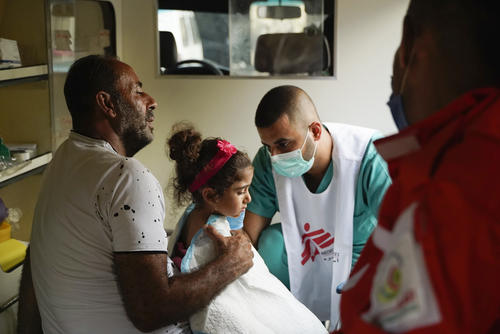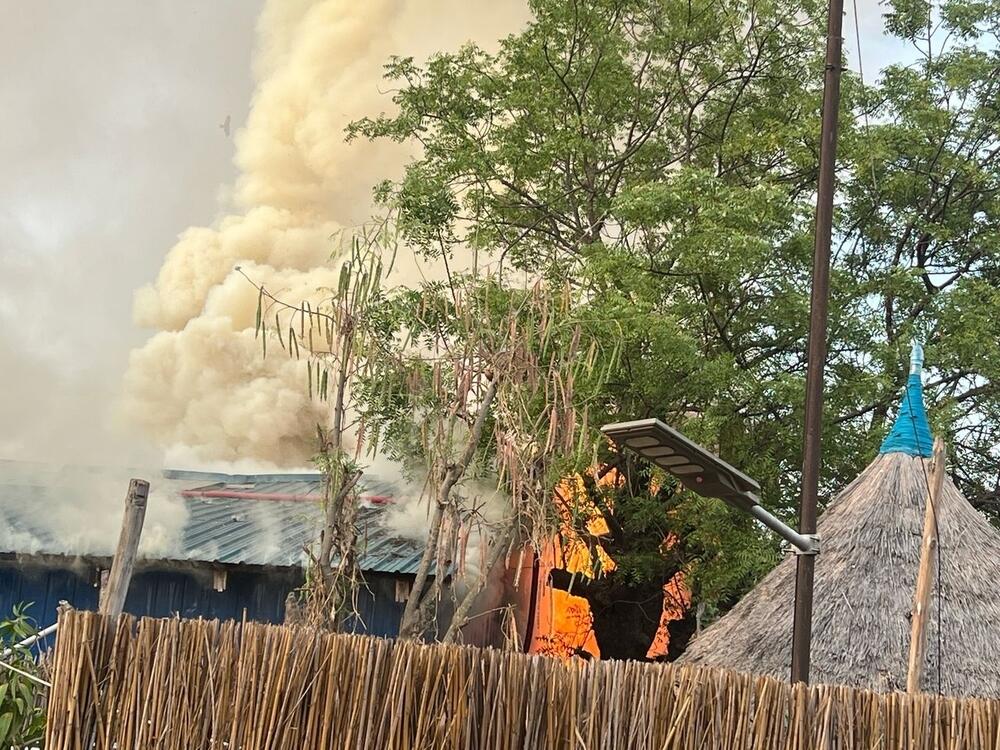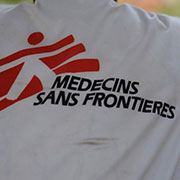‘Nothing left’: An eyewitness account of the bombing of an MSF hospital
David Charo Kahindi was in Old Fangak in South Sudan the day the MSF hospital there was bombed. With his team, he immediately set to work extinguishing the fire and treating and evacuating the wounded patients.
"I was woken by the sound of bombing in Old Fangak town at around 4:50 on Saturday morning. I could hear the helicopters flying overhead and people screaming all around us. Every time I heard the helicopter gunships, I was afraid for my life and the lives of the local people, our patients and the staff. The bombing continued for about an hour. All I could hear was the guns firing and people screaming.
When it finally went quiet, I took the boat to get to the hospital. l met our watchman at the gate, which was completely shattered. There were bullets everywhere. As I walked into the compound, I saw pieces of weaponry that had exploded.
When I reached the pharmacy, I could see it was on fire. Everyone, all the team and local community, was trying to fetch water with buckets to put it out.
It was no easy task, because our fuel tanks were a few metres away from where the pharmacy was, so we were afraid that if the fire continued, this fuel was going to explode and cause another disaster on top of the disaster we were already dealing with.
"When I entered the ward no one was there, but there were bullet holes on the ground and blood on the floor"
At first I thought there was a chance that we could save some of the medications that were inside, but it quickly became clear that whoever bombed the hospital wanted this pharmacy and all the medications inside it to be completely burned. It took us about five hours before we could completely put the fire out.
Then, I walked into the hospital. First, I went to the men’s ward where there had been two patients the night before. When I entered the ward no one was there, but there were bullet holes on the ground and blood on the floor. I was worried. I didn't know what had happened or where the patients had gone. It was the same in the female ward as well.
Next, I reached the emergency room where the team were busy stabilising and treating the patients that had just arrived from the town. There were 20 in total, and some of them were in a very critical condition and we urgently needed to stop the bleeding.
Some of them had been shot in the head, in the chest, in the abdomen. We tried to do everything we could, but there were no supplies other than what had been on the ward before the attack. What we had was definitely not enough.
Medical care where it's needed most
Help us care for people caught in the world's worst healthcare crises.

Once we had stabilised the patients, we evacuated them by speedboat to a village about an hour away that we considered to be safer. Most of the patients were women. There were also children of just 15 years old that were wounded. In this village, there was nothing but a tent.
We were in the middle of nowhere. We kept the patients in the tent there and gave them what medication we had been able to bring with us. The next day, they were evacuated by air to a hospital in Akobo for further treatment.
However, around 10,000 people had fled to the same location and by morning it was clear that we didn't have enough supplies to run a health facility that would be able to provide this many people with any type of medical care.
We called urgently for help from the team in Juba and with the support of the United Nations we were able to airlift 350 kilograms of medical supplies to run a health post from this tent. We hope that we don’t receive any more wounded, but we continue to receive information that there is ongoing bombing in other areas.
I am completely heartbroken by what has happened. The hospital had been there for more than 10 years and was a lifeline to over 100,000 people in the area. Hospitals should never be the targets and I utterly condemn this bombing.
It was a 35-bed hospital that had an outpatient department, inpatient wards, maternity – and we were able to refer severe cases to higher level facilities. Now, there is nothing left."
MSF in South Sudan
Médecins Sans Frontières/Doctors Without Borders (MSF) works in hospitals and clinics throughout South Sudan, where we run some of our biggest programmes worldwide.
As well as providing basic and specialised healthcare, our teams respond to emergencies and disease outbreaks affecting isolated communities, internally displaced people and refugees from Sudan.



